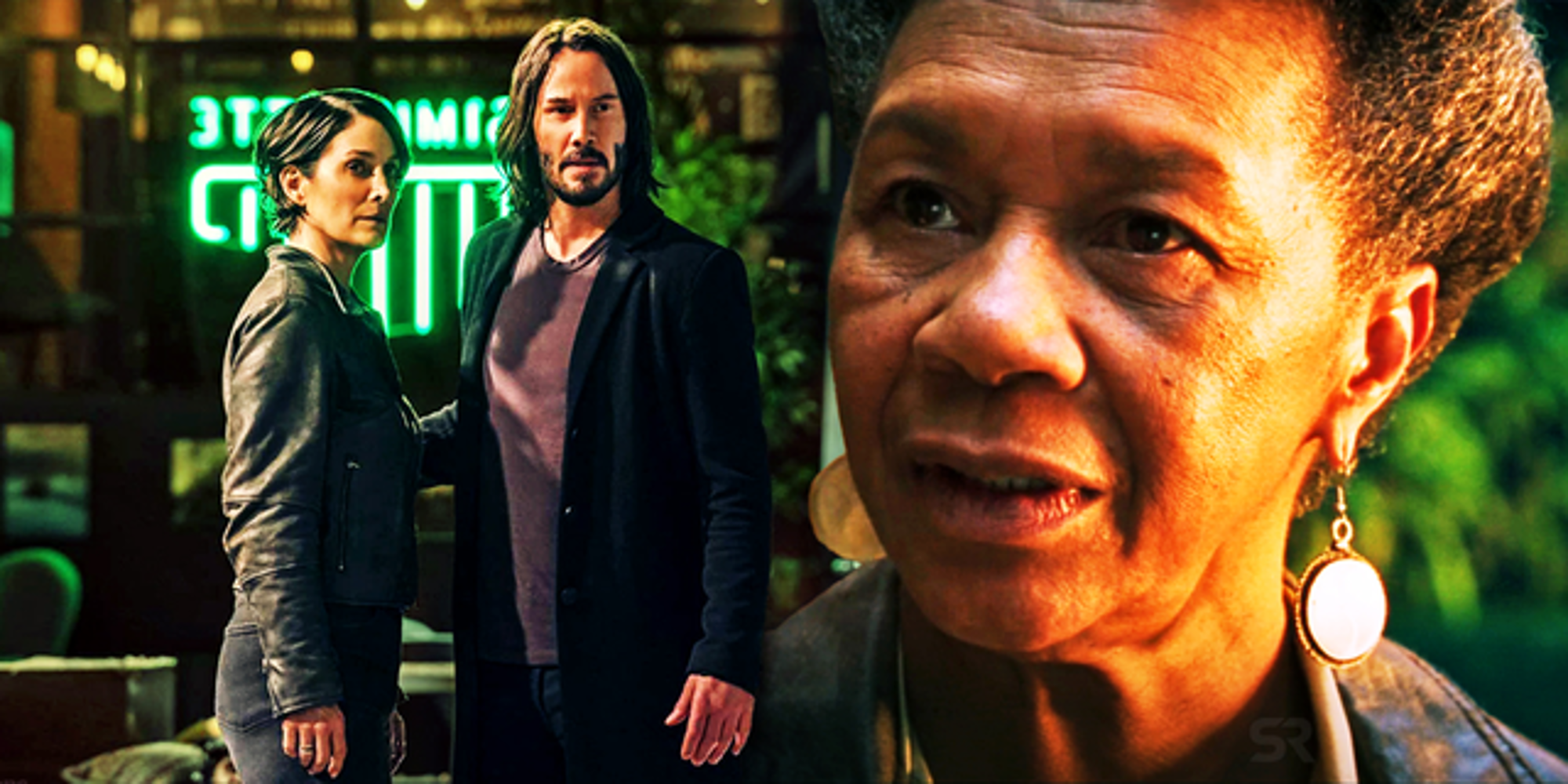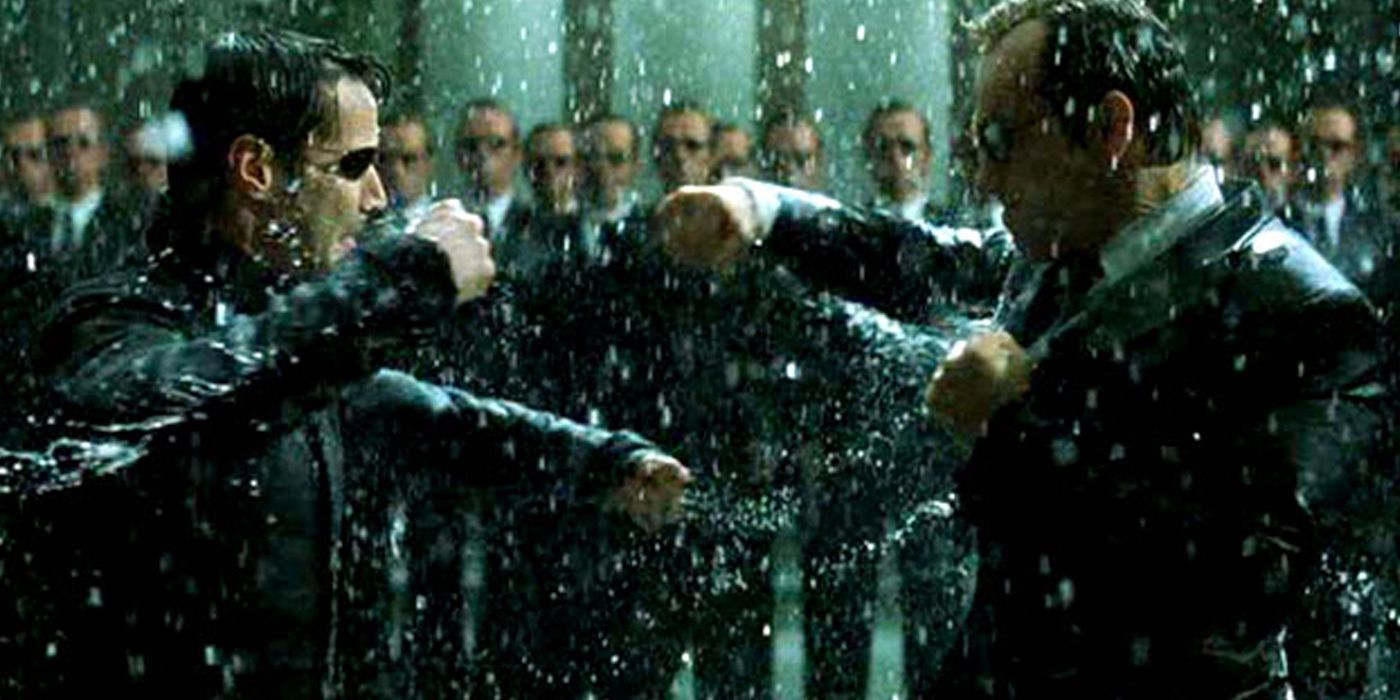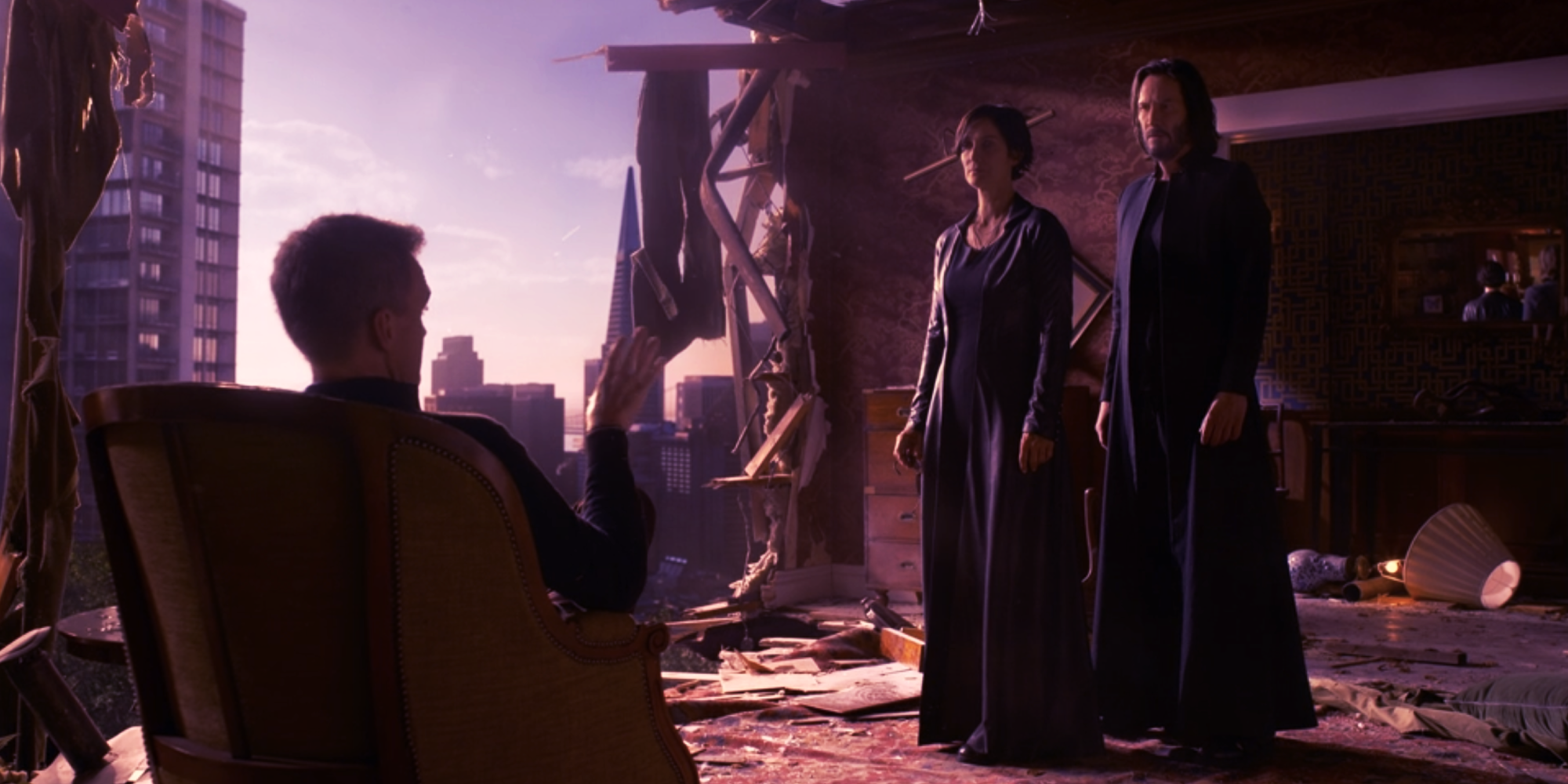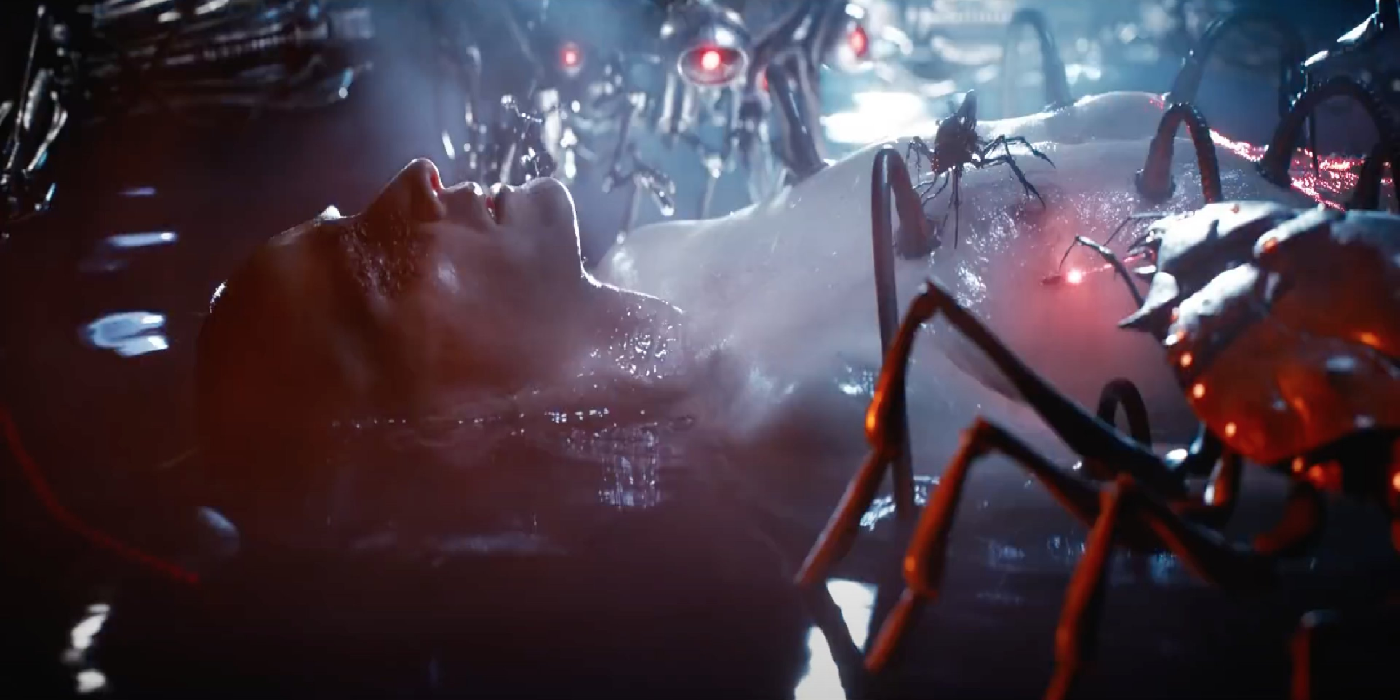The Matrix trilogy might have completed its arc twenty years ago, but it still has a better ending than the unexpected fourth installment, The Matrix: Resurrections. The Matrix: Revolutions wasn't a perfect conclusion to the Wachowski sisters' epic sci-fi saga, but it got the job done, and fans thought they had entered the Matrix for the final time when Neo sacrificed himself to the Machines. However, in 2021, Resurrections premiered and took audiences by surprise, especially since the trilogy's many threads had more or less been tied up.
As its title suggests, Resurrections brought back characters from the original trilogy and placed them in new contexts. Thomas Anderson was a game designer with vague memories of the Matrix, Trinity had no idea about their connection, and Morpheus was a younger incarnation. Resurrections changed the Matrix movies by reviving old threats (like Smith) alongside new ones (like The Analyst) and forced Neo, Trinity, and Morpheus to unite once again against the Machines. There was speculation the movie signaled a reboot of the franchise as a whole or was an attempt to correct some of Revolutions' mistakes, but in the end, it only created more questions than answers.
The Original Matrix Ending Had Clearer Stakes
At the end of the Matrix trilogy, Neo had three options; he could stand by while the Machines mercilessly led an attack on Zion, he could broker peace through unique assimilation, or he could sacrifice himself to the Machines, and they could restart yet another cycle of the Matrix. The stakes were enormous, but the ending was concise and focused on the main theme that was at the heart of the Matrix trilogy; choice. Neo allowed himself to be absorbed into the Machines, thus saving Zion and initiating a new version of the Matrix that had never been done by any One before him.
As The One, Neo had an enormous responsibility, but over the course of the original trilogy, it became clear that all humans aware of the Matrix would need to draw a line in the sand against the Machines for humans to survive. Therefore, Revolutions was an epic showdown that highlighted the power of free will against conformity. Smith became the key to Neo's prophecy, as a program that began representing homogeneity became a rogue agent of unpredictability, a tool that Neo could use to neuter the Machine as no One had ever done.
The Matrix Resurrections' Ending Is Too Ambiguous
In Resurrections, the latest version of the Matrix is still intact, The Analyst has been allowed to live, and Neo and Trinity make only vague remarks towards the end of the film about changing the current landscape. It undoes the sacrifices that Neo, Trinity, and Morpheus made in the Matrix trilogy and seems content to leave things in a state of flux. It's not clear whether the Machines will continue to be a threat and if another epic war looms on the horizon once they attempt to enslave humanity again.
The original Matrix trilogy proved that any intelligence that was self-aware had to co-exist equally to sustain a mutually advantageous system. The Machines had to allow people to "wake up" from the pods in The Matrix if they didn't want to have their system dismantled like it had been before. By allowing characters like The Analyst to live or Smith to come back, Resurrections fails to say anything significant about the balance of power at play or how systems of control were, on some level, always doomed to fail.
Matrix 4 Muddied Revolutions' Clear Ending
Resurrections undoes its predecessors' clear ending by bringing back Neo, Trinity, Morpheus, and all of their old threats, effectively rendering their sacrifices meaningless. By the time Revolutions drew to a close, Neo had chosen to reject the limitations of his own assigned purpose as the One, and together with the rogue elements of the Smith program, created a new path for humankind. Bringing Smith back, and introducing an overpowered character like The Analyst, just makes his decision and the truce with the Machines a hollow illusion.
As the Oracle once said, "everything that has a beginning has an end, Neo," but with Resurrections, the Wachowski's decided that the end of the original Matrix trilogy wasn't final enough for the franchise. By exploring ideas of rebirth and subversion of fandom expectation, the film series was left open-ended rather than drawn to a firm close. When viewed as the ending to all four films, The Matrix: Resurrections makes the franchise seem unmoored, while at the same time showing that the ending of the original Matrix trilogy is actually superior.




